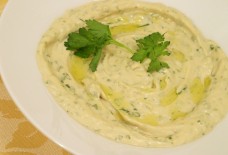America’s battle against ‘the other’
By Fawaz Turki
Gulf News
You would’ve thought, at first blush, that the school was in rural Afghanistan, and the threats directed at the teacher, who had sought to introduce her students to new ideas about the outside world, came from the Taliban.
No, the school, Riverheads High School, is in Augusta County, in Virginia’s Shenandoah Valley, and the threats — many from parents — included one that vowed to put the teacher’s head on a spike. The teacher, Cheryl LaPorte, who is not Muslim, had decided it would be an innovative idea to introduce her world geography class to Arab calligraphy — after all, art is the geography of a people’s cultural soul — by having them try their hand at copying the shahada, a Muslim’s profession of faith.
The vituperative threats, however, prompted the school administrators, bowing not only to outrage from the local community but from across the country, to close all schools in the county rather than risk disruption or, worse, violence.
Where does the venom come from? One’s first reaction is that this Islamophobic sentiment must have been triggered, albeit irrationally, by fear of “Islamic terrorism”, that began to imbue the American sensibility all the way from the carnage of 9/11 to the mayhem in San Bernardino, California — a sentiment whipped up further in recent months by the irresponsible rhetoric of Republican presidential candidates like Donald Trump.
The fact, sad though it may be, is that this is not true. Anti-Muslim prejudice predates 9/11. It has resonated in the American national psyche ever since the first large wave of Muslim immigrants — from South Asia, North Africa, the Middle East and elsewhere — began arriving in the United States in the early 1970s. Those immigrants were seen as “the other”, to be feared, resisted and demonised — much in the manner that earlier immigrants, Catholics and Jews, Poles and Italians, Japanese and Germans, had been. That posture is in America’s cultural DNA: New arrivals always come saddled with the mark of Cain, as it were.
Consider this: On April 19, 1995, years before 9/11, when Timothy McVeigh set off a truck bomb outside the Alfred P. Murrah Federal Building in downtown Oklahoma City, that killed 168 people and injured more than 680 others, the media were so convinced that a Muslim had committed the crime, that Connie Chung, at the time a prominent anchorwoman on CBS News, went out on a limb with the announcement that “it was confirmed Arabs” were behind it all.
Meanwhile, federal authorities were so equally convinced of the perpetrator’s ethnic identity that a hapless Arab-American passenger, travelling on an international flight that had left Oklahoma City on the day of the bombing, whose only crime was that he had a Muslim-sounding name, was intercepted in London by FBI agents and flown back to the US for interrogation. (Anti-Arab and anti-Muslim hysteria did not abate till McVeigh was apprehended and indicted on August 10.)
Consider yet another anecdotal instance of how fear of Muslims as “the other” preceded 9/11: In 1997, the Saudi government was sponsoring the establishment of the Islamic Saudi Academy in Virginia’s Loudon County, a high school to be built on 100 acres north of Dulles Airport, outside Washington, to accommodate 3,500 students, and intended to replace a 14-year-old, 1,200-student school in Mount Vernon. The old school had an excellent record of educating American Muslim youngsters (95 per cent of its graduates went on to college) and was now poised to expand with the new site in Loudon County.
That’s when the bigots came out of the woodwork and began to drum up vehement opposition to the project — not based on land-use merits, but on the worst kind of racial prejudice, religious intolerance and mean-spirited provincialism. Fliers were left outside doors in Ashburn Village, close to the site where the school was to be built, warning homeowners that the school “would bring Muslim and Arab terrorists to Loudon” and that “thousands of Middle Eastern strangers would be roaming our streets while we work”. (The School Board finally voted 7 to 2 in favour of the school.)
Social scientists agree, and after all we should sometimes believe them too, that prejudice is endemic in all societies. That may be so. Whichever way you look at it, prejudice, along with its cousin, racism, has bedevilled American culture from the time when the one-million-member strong, anti-Catholic Know Nothing Party was running wild in the 1850s, to the time when Japanese Americans were incarcerated in prison camps during the Second World War.
Yet, it only takes a generation — from the time one’s parents set foot in America, fresh off the boat, to the time when one graduates from college — for everyone in the ethnic community to assimilate and be accepted. America always comes to its senses. That too, paradoxically, is in the country’s cultural DNA. America will even publicly express remorse for whatever injustice it may have inflicted on you in the past — as evidenced, among other cases, by how, in March 1986, the US Supreme Court reversed itself on its shameful ruling regarding the internment of American citizens of Japanese descent during the War.
After all, all Americans were at one time “the other” — immigrants whose hands had not only mined coal and fired steel, built highways and bridges, manned conveyor belts and manufactured cars, but also raised children whose brain power enabled their parents’ adopted country to accumulate intellectual capital.
Americans are Americans, whether they are fresh-off-the-boat, pauperised Syrian refugees in 2016, or fresh-off-the-Mayflower separatist Pilgrims in 1620. No two-ways about it. And bigots will always be given the option to go jump in a lake.
Fawaz Turki is a journalist, lecturer and author based in Washington. He is the author of The Disinherited: Journal of a Palestinian Exile.
Source: gulfnews.com



